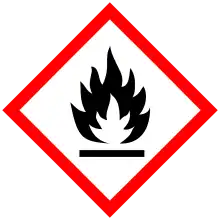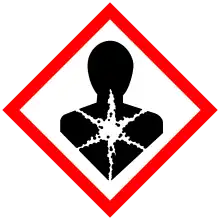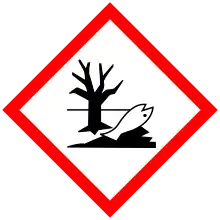| |||
| Names | |||
|---|---|---|---|
| Preferred IUPAC name
3-Methylpentane[1] | |||
| Identifiers | |||
3D model (JSmol) |
|||
| 1730734 | |||
| ChEBI | |||
| ChEMBL | |||
| ChemSpider | |||
| ECHA InfoCard | 100.002.257 | ||
| EC Number |
| ||
| MeSH | 3-methylpentane | ||
PubChem CID |
|||
| RTECS number |
| ||
| UNII | |||
| UN number | 1208 | ||
CompTox Dashboard (EPA) |
|||
| |||
| |||
| Properties | |||
| C6H14 | |||
| Molar mass | 86.178 g·mol−1 | ||
| Appearance | Colorless liquid | ||
| Odor | Odorless | ||
| Density | 664 mg mL−1 | ||
| Melting point | −162.8 °C; −261.1 °F; 110.3 K | ||
| Boiling point | 62.9 to 63.7 °C; 145.1 to 146.6 °F; 336.0 to 336.8 K | ||
| Insoluble | |||
| log P | 3.608 | ||
| Vapor pressure | 18.0 kPa (at 17 °C) | ||
Henry's law constant (kH) |
8.8 mol Pa−1 kg−1 | ||
| -75.52·10−6 cm3/mol | |||
Refractive index (nD) |
1.376 | ||
| Thermochemistry | |||
Heat capacity (C) |
191.16 J K−1 mol−1 | ||
Std molar entropy (S⦵298) |
292.5 J K−1 mol−1 | ||
Std enthalpy of formation (ΔfH⦵298) |
−203.0–−201.0 kJ mol−1 | ||
Std enthalpy of combustion (ΔcH⦵298) |
−4.1608–−4.1590 MJ mol−1 | ||
| Hazards | |||
| GHS labelling: | |||
    | |||
| Danger | |||
| H225, H304, H315, H336, H411 | |||
| P210, P261, P273, P301+P310, P331 | |||
| Flash point | −7 °C (19 °F; 266 K) | ||
| 278 °C (532 °F; 551 K) | |||
| Explosive limits | 1.2–7.7% | ||
| NIOSH (US health exposure limits): | |||
PEL (Permissible) |
none[2] | ||
| Related compounds | |||
Related alkanes |
|||
Related compounds |
|||
Except where otherwise noted, data are given for materials in their standard state (at 25 °C [77 °F], 100 kPa).
Infobox references | |||
3-Methylpentane is a branched alkane with the molecular formula C6H14. It is a structural isomer of hexane composed of a methyl group bonded to the third carbon atom in a pentane chain. It is of similar structure to the isomeric 2-methylpentane, which has the methyl group located on the second carbon of the pentane chain.
It is formed by (Pentan-2-ol)+(3-methyl)=3-methylpentan-2-ol
References
- ↑ "3-methylpentane - Compound Summary". PubChem Compound. USA: National Center for Biotechnology Information. 26 March 2005. Identification and Related Records. Retrieved 5 March 2012.
- ↑ NIOSH Pocket Guide to Chemical Hazards. "#0323". National Institute for Occupational Safety and Health (NIOSH).
External links
This article is issued from Wikipedia. The text is licensed under Creative Commons - Attribution - Sharealike. Additional terms may apply for the media files.

